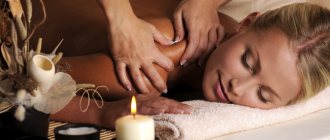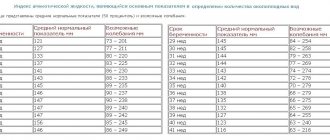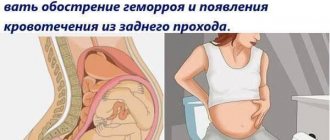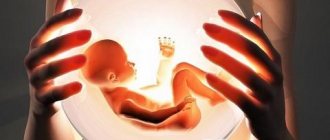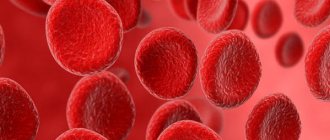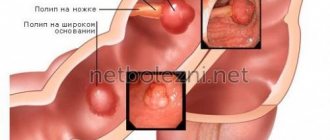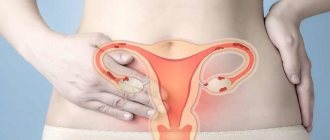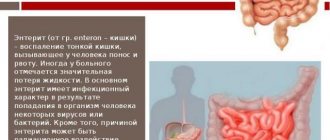Obsessive itching in the anal canal is a symptom that is rarely addressed to a doctor. It is considered inconvenient, sometimes indecent, and is often ignored. Meanwhile, itching near the anus or inside it does not occur for no reason. It may hide a serious intestinal or rectal disease, endocrine disorders and parasites.
To say goodbye to unbearable itching in an “inconvenient place” once and for all, you need to find out the reasons for its occurrence, and then select effective treatment methods.
What is itching in the anus?
Itching is a painful, tickling sensation in the skin that causes an obsessive desire to scratch the affected area. Itching often occurs due to irritation of the skin near the anus. For example, with idiopathic itching, there is increased production of mucus by the intestinal walls. Fluid is constantly released from the anus, causing inflammation and redness of the surrounding tissues. This is what causes discomfort. But other reasons also lead to inflammation.
For example, with enterobiasis, painful itching occurs due to the movement of small parasitic worms - pinworms. The burning sensation intensifies in the dark, when the helminths move closer to the anus. This irritates the nerve endings, which causes an itchy burning sensation. But these are not all the factors due to which this pathological condition can develop.
What can happen if you ignore the verge?
Ignoring a problem such as itching in the anus can lead to disastrous consequences. Sverbezh is often only a symptom of another, often very serious, pathology, and if not diagnosed in time, the disease goes into a chronic stage, the treatment of which becomes difficult. It is especially dangerous if the cause of anal itching is colon or rectal cancer.
What causes itching in the anus?
Anal itching is not always caused by pathological processes occurring in the body.
It may also be associated with external influences:
- using hard toilet paper that injures the skin;
- excessive or insufficient intimate hygiene;
- working in a room with dusty air.
Unsuitable soap or allergies to cosmetic fragrances also lead to skin irritation and can cause burning and itching.
Irritation of the anal area is caused by a variety of diseases:
- parasitic infestations;
- inflammation of hemorrhoids;
- fungal infections;
- genitourinary infections;
- neoplasms;
- insufficient function of the anal sphincter;
- diabetes mellitus and other severe chronic diseases.
In many cases, an unpleasant symptom occurs due to diseases of the rectum. Their spectrum is quite wide: skin neoplasms, chronic proctosigmoiditis, and dysbacteriosis can cause a burning sensation. Other symptoms gradually appear: for example, pain and pain during bowel movements, bloody and mucous clots in the stool, a feeling of pressure and heaviness in the lower abdomen. But the main symptom remains irritation and redness of the skin.
In women, itching may be associated with certain gynecological diseases. At the same time, it radiates not only to the anal area, but also spreads to the labia majora, labia minora, and vulva. The perineum becomes red and swollen, and copious discharge with an unpleasant odor appears.
The causes of burning are varied, so if it occurs, it is recommended to contact a medical center for examination by a proctologist.
Folk remedies
To eliminate itching in the anus in women, treatment must be adequate.
Only a specialist can determine the exact cause of the unpleasant phenomenon. The lady must visit a therapist, proctologist, gastroenterologist, dermatologist, endocrinologist and undergo the necessary tests (bacterial culture, feces, urine, blood, etc.). You should not delay contacting a medical facility, since any pathology is much easier to treat in the early stages. For proctological diseases, along with medications, patients are recommended to use sea buckthorn oil, which has unique wound-healing and regenerating properties.
Hemorrhoids and anal fissures are treated with a cotton swab, generously soaked in healing oil. (add. - sea buckthorn suppositories for hemorrhoids).
- In cases of pathological processes occurring in the rectum, sea buckthorn oil is administered through a microenema (a traditional cleansing enema is required before the procedure). Therapy is carried out in the evening for 10-12 days.
- For vaginal dysbiosis, traditional medicine uses tampons soaked in sea buckthorn oil or a mixture of freshly squeezed aloe juice and olive oil (1:1).
- If a helminthic infestation is detected, a course of medication should be taken to destroy the identified type of parasite.
After this, it is advisable to restore the intestinal microflora by taking medications with acidophilus and lactobacilli, as well as increased consumption of fermented milk products (yogurt, kefir) enriched with probiotics.
The same recommendation applies to the treatment of dysbiosis. If the problem is caused by a stressful situation, then you should think about visiting an experienced psychologist, and also use available relaxation methods: yoga classes, visiting the steam room.
Also useful are walks in the woods, relaxation at sea, a massage course with relaxing essential oils that have antidepressant properties: lavender, orange, neroli, jasmine, rosemary, geranium, chamomile, peppermint, lemon balm.
Traditional medicine takes problems that arise in the anus very seriously. In her bins there are many recipes designed to help get rid of a serious condition. Making your own rectal suppositories is not difficult. They may include:
- natural fat. This could be butter, pieces of fresh lard, badger fat;
- products made by beekeepers: propolis, candied honey, beeswax;
- raw potatoes;
- decoctions of available medicinal herbs.
The prepared material must be frozen, giving it the shape of candles. You can cut cylinders from potatoes and lard, giving them the desired configuration. Frozen suppositories, once ingested, will dissolve under the influence of heat and be absorbed by soft tissues. If not frozen, they will be passed out in the feces. To make the candles pass more easily, the anus is lubricated with honey or fat.
Here are some recipes for infusions that can be used internally. Candles are also prepared from them:
- Stock up on chamomile, burdock root and walnut leaves. Mix everything in equal quantities. A tablespoon of this mixture is poured into a glass of hot water. Plants should be boiled for about 15 minutes, then cooled. Then the finished broth is filtered through cheesecloth and consumed half a glass three times a day.
- Prepare willow, buckthorn and oak bark. Pour two tablespoons of the mixture into a liter of hot water and simmer for ten minutes. The decoction should sit for at least half an hour. The strained drink is taken one teaspoon after a meal.
- Combine chamomile flowers, linden flowers, mint and yarrow leaves in equal quantities. One hundred grams of the mixture is placed in a saucepan and 0.25 liters of boiling water is poured. The broth needs to be simmered for ten minutes. Then it is infused and filtered for about two hours. Use one third of a glass three times a day.
Source: cosmetic-oil.com
Itching around the anus
Skin lesions near the anus are associated with exposure to external and internal factors. The first includes:
- increased sweating. More often observed in people with excess body weight. Sweat begins to accumulate in the perineal area, irritating the skin. As a result, diaper rash appears, which serves as a source of discomfort;
- wearing tight synthetic underwear. Linen fabric disrupts natural air exchange and prevents normal moisture removal. Rough internal seams violate the integrity of the skin and impair blood microcirculation. All this creates favorable conditions for the development of pathogens.
If the irritation is caused by external causes, curing it is quite simple. The patient is advised to give up synthetic detergents (or choose hypoallergenic cosmetics tested by dermatologists) and choose natural, loose underwear with a comfortable cut.
Conditions associated with internal pathologies are more difficult to treat. For example, itching is the main symptom of dermatitis and psoriasis, lichen, and eczema. Dysbacteriosis and diarrhea can cause a burning sensation. Too frequent bowel movements have a negative impact on the condition of the mucous membrane: blood rushes to it, the tissues swell, become more sensitive - any touch is accompanied by pain. But there are also more serious reasons that disrupt the functioning of the sphincter.
For example, chronic metabolic disorders lead to the accumulation of toxins in tissue cells. As a result, the patient develops skin rashes that extend to the perineum. Therefore, itching accompanies diabetes mellitus, cirrhosis and liver tumors, and pancreatic pathologies.
Which doctor treats itching in the anus?
If the anal area becomes red and itchy, you should make an appointment with a proctologist. The specialist will listen to complaints, clarify family history, and conduct an initial examination. But to make an accurate diagnosis, examinations will be required, the range of which will be determined by the doctor.
Typically studies include:
- blood and urine tests;
- irrigoscopy;
- colonoscopy;
- sigmoidoscopy;
- anoscopy and other intestinal examinations.
In some cases, consultations with other doctors are required: a urologist or gynecologist, endocrinologist, dermatovenerologist. Referrals to them are given by a proctologist. Based on the results of the tests, the disease causing irritation in the anal area is determined, and the appropriate treatment is selected.
Diagnostics
To diagnose an anal fissure, you need to consult a proctologist. In the process of diagnosing a fissure, the doctor will conduct a detailed conversation to determine the presence of symptoms. After which he will conduct a visual inspection and palpation of the damaged area.
During the examination, the patient is recommended to be given local anesthesia. It is also recommended to collect an anamnesis from the site of damage to the mucous membrane for the presence of microorganisms that contribute to the aggravation of the disease.
In acute cases of anal fissure, the following diagnostic methods can be prescribed:
- anoscopy – examination of the anus using a special instrument; Rectoscopy
- rectoscopy - an examination aimed at identifying diseases of the digestive system and inflammatory formations in the rectum;
- X-ray – used if the presence of formations in the rectum is suspected.
Diagnostic methods are determined by the attending physician individually for each patient.
Why does the anus hurt?
In some patients, the itching turns into aching or cutting pain in the anal area. The attacks differ in duration and intensity, radiating to the lower abdomen, lower back, and lower spine. The severity of the pain syndrome and its specificity are determined by the pathological disorder that led to the appearance of pain.
Doctors can diagnose:
- anal fissure. It is usually diagnosed after mechanical trauma to the sphincter and surrounding tissues - for example, during difficult childbirth or after an accident. The mucous membrane “cracks” and exposes the muscles, which leads to severe pain. Painful spasms occur when visiting the toilet, performing hygiene procedures, or touching the affected area;
- anorectal fistula. A fistula is a pathological channel between the intestines and the skin of the buttocks. The fistula itself is usually painless, but mucus and other waste products are constantly released from it, which leads to constant irritation of the surrounding tissues. The skin becomes inflamed, swollen, red and itchy;
- haemorrhoids. A common cause of pain and heaviness in the anal area. With hemorrhoids, the hemorrhoidal nodes located next to the sphincter become inflamed. If the nodes are slightly enlarged (the disease is at the initial stage), then the patient experiences discomfort only when bowel movements. But as the pathology progresses, acute pain appears with any touch to the tailbone area - it becomes impossible to sit. Other symptoms of hemorrhoids include: bleeding from the anus, the appearance of cracks in the mucous membrane;
- chronic proctosigmoiditis. This is the name for inflammation of the lower intestine, which occurs with clearly defined periods of remission. During periods of exacerbation, the patient's temperature rises, a sensation of a foreign body in the anus and severe itching pain;
- intestinal tumors. The appearance of neoplasms in the gastrointestinal tract is also accompanied by pain and burning. The closer the tumor is to the anus, the more pronounced discomfort the person will experience.
Constipation (due to hardening of stool, creating pressure on the intestinal walls) or diarrhea can lead to pain in the anus. Often severe pain occurs due to impaired blood flow in the gluteal muscles, for example, from a prolonged forced sitting position. Truckers or people, freight forwarders encounter this manifestation. The exact cause can only be determined after an examination.
If treatment is not started, the disease worsens and other signs of pathologies gradually develop:
- fever;
- discharge from the anus;
- mucus in stool;
- dysfunction of the gastrointestinal tract;
- pain in the abdominal area.
The patient loses his appetite, experiences nausea after eating, and his weight changes dramatically. The skin becomes pale, moist, with a grayish tint. If such signs appear, it is recommended to make an appointment with a doctor as soon as possible. Pain and burning in the anus may indicate a serious pathology that requires immediate treatment.
Diet
Maintaining proper nutrition and introducing healthy foods into the diet is of great importance in eliminating such a complex disease as anal fissure. Most often, when visiting a medical facility, a specialist individually selects a nutritional method.
However, if necessary, you can independently create a menu of products recommended for consumption.
| Recommended Products | Prohibited Products |
| Bran (bran bread) | Salty and spicy foods |
| Carrot | Marinades |
| Cabbage | Sausages |
| Sunflower oil | Smoked meats |
| Legumes | Fatty meats |
| Bouillon | Caffeine |
| Boiled chicken | Alcohol products |
| Vegetable juices | Spices |
| Boiled fish | Carbonated drinks |
| Dairy | Flour products |
| Potato | Dishes prepared by frying |
| Whole grain cereals | Fast food |
| Beet | Confectionery |
In addition to basic food products, natural juices can be included in a person’s diet, which improve intestinal function and make it easier to go to the toilet. During the period of special nutrition, it is recommended to drink teas from herbal decoctions and compotes. Reduce consumption of sugary drinks.
Meals should be in small portions up to 6 times a day. Before eating, you should drink warm water or chamomile infusion.
Sharp pain in the lower abdomen, radiating to the anus
Quite often, women encounter this type of pain in the middle of the menstrual cycle. The pain occurs due to the rupture of the follicle when the egg is released. The process is accompanied by a local increase in temperature in the ovaries, which further aggravates the discomfort. But these are natural processes that do not cause concern.
Similar pain occurs during menstruation. It can be very pronounced and quite long (up to two days). You should not take painkillers or hormonal medications on your own - it is better to contact a supervising gynecologist to prescribe antispasmodics.
But pain in the lower abdomen may also indicate pathologies:
- inflammation and accumulation of fluid in the retrouterine area;
- adhesions affecting the reproductive organs;
- ovarian cyst;
- ectopic pregnancy.
If sharp pain occurs in men, it may be caused by inflammation of the appendix. Along with the pain, nausea, general weakness, and heart rhythm disturbances occur. But sometimes painful sensations in the abdomen are caused by ordinary constipation and flatulence. However, if a person regularly experiences indigestion or suffers from regular constipation, this may be a sign of a serious pathology. It is worth making an appointment with a gastroenterologist or proctologist.
Alarming symptoms
It seems that everything is simple here - who wouldn’t notice if he has redness and itching of the anus. But the whole point is that this may not necessarily be an exhausting strong burning sensation; it happens that a fairly serious disease is expressed only in a constant slight feeling of irritation of the skin near the anus. During the day, such barely noticeable symptoms can disappear almost completely, but at night, on the contrary, they intensify many times over.
The situation is complicated by the fact that the woman cannot independently see what the problem area looks like. But with due diligence, you can take a small mirror and still try to examine the itchy area. Sometimes depigmentation can be seen in this area, the skin may be thinned and hypertrophied, too dry or, on the contrary, weeping; also, as a rule, traces of scratching will be visible.
Why does pain radiate to the anus during pregnancy?
Pregnant women periodically experience unpleasant pain radiating to the anal sphincter area. Discomfort is caused by a number of factors:
- Fetal growth leads to increased pressure on the intestines. Internal organs become compressed, blood flow to them deteriorates and metabolic processes slow down. To compensate for this effect, the veins swell and expand, which gradually worsens the elasticity of the intestinal walls and leads to the formation of hemorrhagic nodes;
- in the last trimester, the organs of the peritoneum are compressed and displaced, experiencing a lack of nutrients. This affects their functioning - in particular, pregnant women may suffer from constipation or diarrhea, which is also accompanied by painful sensations in the anus;
- During pregnancy, the body's immune defense decreases and inflammatory processes worsen, pathogenic microflora activates, and dysbacteriosis often develops.
Fetal growth also affects intestinal motor functions. Peristalsis worsens, which leads to frequent constipation. The situation is aggravated due to the woman’s low mobility in the last stages of pregnancy. To avoid problems with the gastrointestinal tract, it is recommended to balance your diet, and if unpleasant symptoms recur, consult an experienced doctor.
When pain occurs at 8-9 months of pregnancy, it may indicate the onset of labor or “false contractions.” Therefore, the appearance of the slightest discomfort cannot be ignored - this can negatively affect the health of the mother and her unborn child.
Tips and tricks
To rule out diabetes mellitus, at the first sign of itching in the anal area, a woman is advised to donate blood for glucose levels and visit an endocrinologist.
For the period until the cause of anal itching has not been established, women are recommended to adhere to the following preventive measures: Eliminate spices, herbs, marinades, canned food, and smoking from the diet.
Reduce the amount of simple carbohydrates you eat (sugar, confectionery, baked goods, chocolate, lemonade, candy, etc.). If you are taking any medications, then study their side effects, perhaps among them you will find itching in the anus.
Consult your doctor to change or re-select medications. Drink only clean water (bottled or filtered). After bowel movements, rinse the sphincter with cool water without using detergents.
If it is not possible to wash yourself after defecation, use only soft napkins with a smooth and uniform texture without fragrances. Avoid wearing synthetic panties and tight thongs.
Wear loose underwear made from natural fabrics (cotton, linen, chintz, knitwear). This step will help eliminate individual intolerance and facilitate control of discharge (mucosal or blood) from the rectum.
Give up active sex life or significantly minimize contact. If the itching does not go away within a week (if you follow all the recommendations listed), then immediately seek medical help, since this sign is most likely a symptom of some disease.
Source: cosmetic-oil.com
How to get rid of itching in the anus?
If itching and burning appears in the anal area, you need to make sure that it is not caused by external factors. Perhaps you recently changed your intimate hygiene product and the itching is caused by an allergic reaction.
In this case it is necessary:
- remove cosmetic residues from the skin;
- wear loose, comfortable-shaped underwear made of cotton, silk or other natural materials;
- choose soft, fragrance-free toilet paper.
By eliminating the external irritant, you will get rid of the itching. But if, in addition to irritation, you find symptoms such as:
- rashes on the buttocks;
- the appearance of condylomas;
- weeping sores.
In this case, it is recommended to seek advice from a proctologist or dermatovenerologist as soon as possible. Most likely, the patient has a skin infection caused by a bacteria, virus, or fungus. The doctor will prescribe the necessary tests to detect the pathogen and select the appropriate treatment.
If independent attempts to cope with the itching do not bring results for more than a day, the burning and stinging intensifies, or new symptoms of disorders appear, you should not self-medicate. Many diseases can cause discomfort in the anal area, and the sooner they are detected, the higher the likelihood of a quick recovery without complications.
Ozone therapy of the intestines - will it help?
Ozone therapy was previously used only in cosmetology, but doctors borrowed this method to treat the intestines. It involves taking 8 ml of blood from the patient, after which it is separated into plasma and red blood cells in a centrifuge. The plasma is additionally enriched with biologically active substances and platelets, after which it is injected into the patient’s area under the anal fissure. This allows tissues to recover faster.
Plasma can be enriched with ozone, which will increase the therapeutic effect and further stimulate the patient’s immune system. Ozone therapy for anal fissures is actively used in various countries. In recent years, this method has begun to gain popularity in Russia.
Doctors' opinion
Zagryadsky A. E. (Professor, Doctor of Medical Sciences, member of the Academy of Medical Sciences of the Russian Federation, head of the department of proctology at the MC ON CLINIC): “There are clear protocols for the treatment of anal fissures. Ozone therapy is not included in these protocols. In order for the patient to recover, it will be necessary to normalize stool, relieve spasm from the sphincter, stimulate tissue healing, and increase blood circulation in the capillaries. To achieve the latter goal, phlebotonics are prescribed: Phlebodia or Detralex.”
Lagodich L. G (surgeon, traumatologist, proctologist): “It will not be possible to cope with anal fissure with one single method. An integrated approach is needed."
How to treat itching in the anus?
The treatment regimen depends on the diagnosed disease. If the itching is caused by parasitic infestation, anthelmintic drugs are prescribed. In case of contact dermatitis, the doctor prescribes antihistamine tablets and topical ointments.
Typically, complex treatment is carried out, which may include:
- physiotherapy. They improve blood circulation in tissues, promote rapid healing and normalization of the rectum. Reduce the severity of pain and help alleviate the patient’s condition;
- taking antiviral and antimicrobial drugs. Prescribed if pain and itching are caused by pathogenic microorganisms. Targets the pathogen;
- painkillers. For intense pain, novocaine blockades are prescribed.
Medicines and procedures are selected depending on the diagnosed disease, the patient’s current state of health, and the characteristics of his body. The proctologist monitors the progress of treatment until the patient recovers completely.
Drug treatment
Depending on the established cause of itching, the doctor selects medications that can relieve this unpleasant sensation.
If the symptom is caused by diseases of the internal organs (diabetes mellitus, dysfunction of the pancreas and liver, intestinal dysbiosis), then the medical specialist will prescribe adequate treatment to eliminate the underlying disease.
Skin diseases require a special approach, timely prescription of drugs produced in the form of special ointments that have a drying effect. This group of drugs includes salicylic and zinc ointment, Hydrocortisone.
If the appearance of itching in the anal area is a consequence of the development of an allergic reaction, the attending physician selects highly effective antihistamines that have a wide spectrum of action:
- Suprastin.
- Clarotadine.
- Claritin.
- Tavegil.
Sexually transmitted diseases must be treated with special medications:
- Ciprofloxacin.
- Polygynaxa.
- Azithromycin.
- Doxycycline.
- Clotrimazole.
When helminths—parasitic worms—are detected in the human body, a medical specialist prescribes antiparasitic therapy. Guaranteed relief from helminths within a short period of time is facilitated by the administration of the following medications:
- Wormil, which comes in the form of chewable tablets.
- Pyrantel, produced in the form of suspensions.
Sometimes, after a comprehensive examination, diseases of the rectum and sigmoid colon are detected. Then the attending physician prescribes drugs produced in the form of suspensions, special ointments and gels. Their regular use helps to quickly relieve itching. Let's list these drugs.
- Gepatrombin G is a safe and highly effective remedy for hemorrhoids, available in the form of rectal suppositories and ointments of uniform consistency.
- Preparations of the Relief line, which are intended for topical use and are considered antihemorrhoids.
- A cream for external use called Celestoderm-B, its active ingredient is betamethasone 17-valerate.
- Troxevasin is an angioprotective agent produced in the form of a gel.
- Heparin ointment. This drug has an antibacterial effect, eliminates inflammation and irritation of the mucous membranes, and relieves constant itching and discomfort.
If prolonged stress, exhaustion of the nervous system, severe physical and mental stress have led to the development of constant itching, it is recommended to take sedatives and sedatives:
- Tinctures of motherwort, hawthorn or valerian.
- The drugs Tenoten and Afobazol, which have shown high clinical effectiveness.
- Novo-Passita or Persena.
There are cases when, in addition to the patient’s complaints of itching, no disease tests are detected; in this case, a latent course of proctosigmoiditis is suspected, and dietary nutrition, skin ointments, and microenemas with collargol are prescribed.
In case of manifestation of neuritis and psychosis, sedatives are prescribed - valerian, bromine, Corvalol. For allergic causes, antihistamines, that is, allergy pills, are indicated.
To prevent itching of the anus, the cause of which has been established and treatment has been carried out, you can use Hemo-Pro rectal suppositories with propolis.
Source: medsimptom.com
What to do if you have severe pain in the anus?
When faced with severe pain near the anus, it is recommended to contact a medical center for qualified help. You should not self-medicate - taking painkillers only masks the symptom, while the disease will progress. There is also no need to rely on folk remedies. They are not effective and, in some pathologies, can only aggravate the patient’s condition.
To make an accurate diagnosis, it is necessary to undergo a series of laboratory and instrumental examinations. Based on their results, the doctor will determine the cause of severe pain and select effective therapy.
Simple prevention will help reduce the risk of proctological disorders:
- do not allow blood to stagnate in the gluteal muscles - when working sedentarily, try to get up regularly and do a little warm-up;
- balance your diet - add enough vegetables and fruits with plenty of fiber. Plant fibers stimulate intestinal motor function and help maintain muscle tone;
- do not abuse alcohol, spicy, salty and smoked foods. These products irritate the mucous membrane and provoke inflammation;
- balance your work and rest schedule - increased psycho-emotional stress can also cause intestinal problems.
Persons at high risk (overweight, difficult childbirth, family history of inflammation and tumors of the gastrointestinal tract) are recommended to undergo regular preventive examinations in the proctology department.
